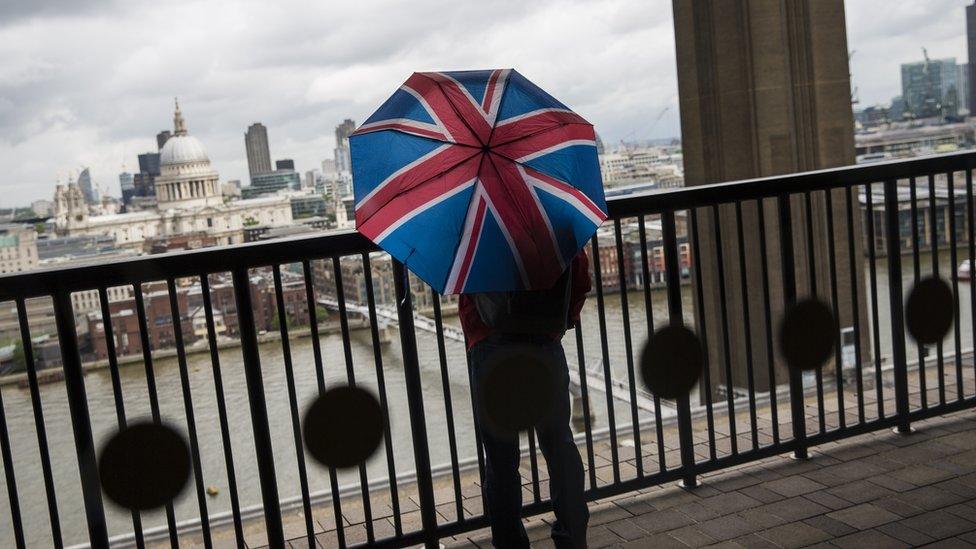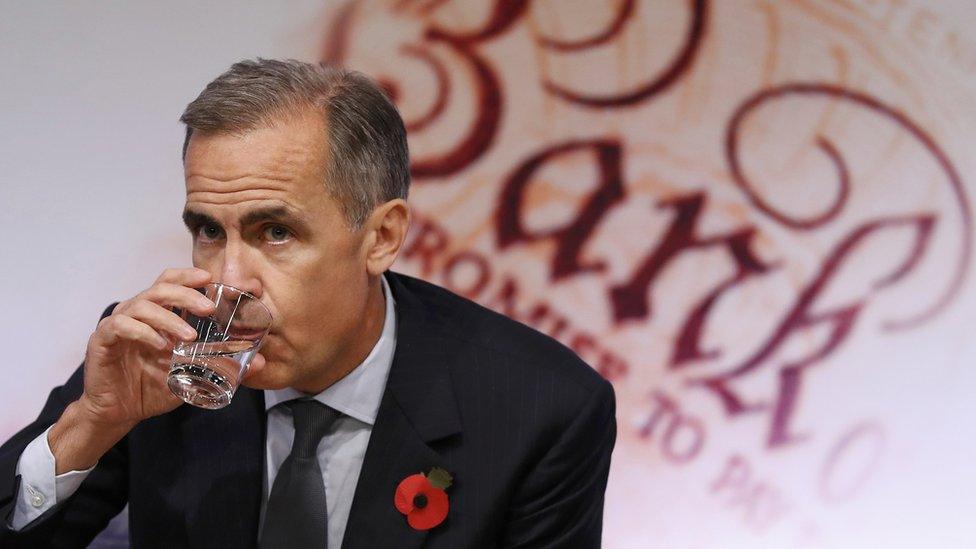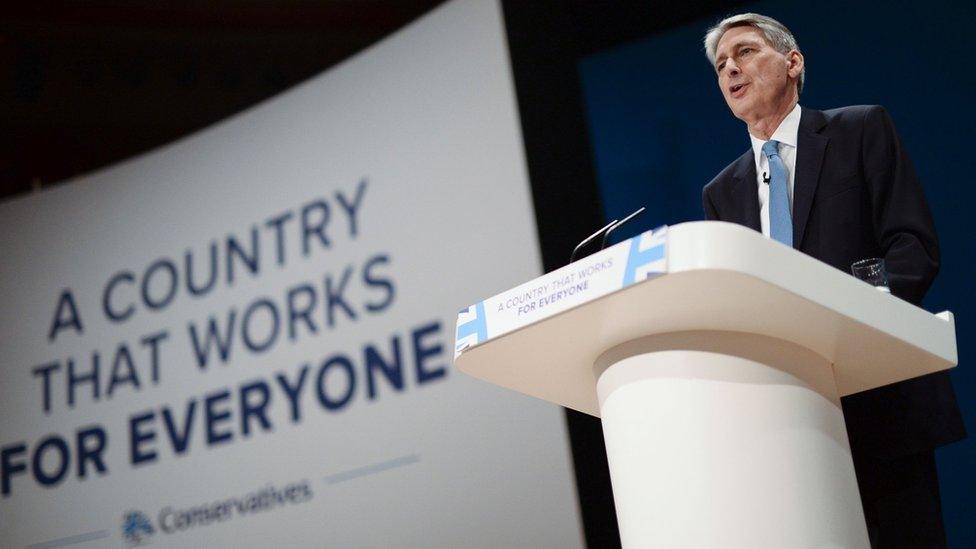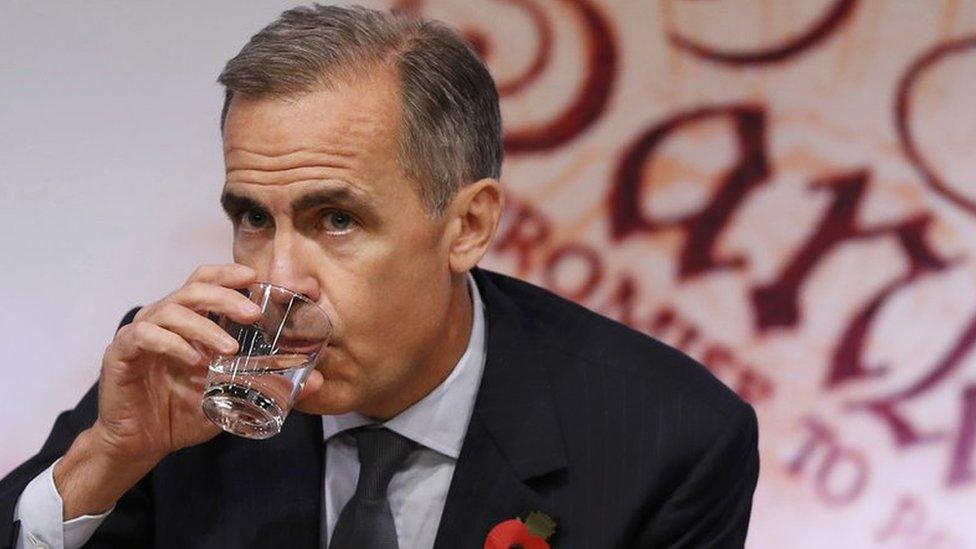UK public finances to be '£25bn worse off' by 2020
- Published
- comments

The prospects for the UK's public finances have deteriorated by £25bn since the March Budget, an influential think tank has warned.
The Institute for Fiscal Studies said weak growth would lead to lower-than-expected tax receipts, increasing borrowing by £25bn by 2019-20.
The weaker prospects for the economy would result in a "significant increase in the deficit", it said.
Its forecasts come ahead of the Autumn Statement on 23 November.
The event will mark Philip Hammond's first significant test since he became chancellor.
"The new chancellor's first fiscal event will not be easy," said IFS research economist Thomas Pope.
"Growth forecasts are almost sure to be cut, leading to a significant increase in the deficit even if all the very challenging spending cuts currently planned are in fact delivered."
'Two big decisions'
Mr Hammond has already said he will prioritise spending on new homes and transport rather than following his predecessor George Osborne's aim to balance the books by 2020.
The IFS said he now had "two big decisions" to make; one on whether he should increase spending or cut taxes to boost the economy and the second on what new fiscal targets he should announce.
Mr Pope said given uncertainty over the economic outlook, Mr Hammond "might be wise to respond cautiously for now".
"Any new fiscal targets should be reasonably flexible," he said.

The Bank of England expects inflation to almost triple to 2.7% next year
Several groups have reduced their UK growth forecasts and raised their inflation forecasts since the EU referendum.
Last month, the International Monetary Fund cut its forecast for 2017 UK economic growth to 1.1% as it warned that the global recovery remains "weak and precarious".
International body the OECD also cut its forecast for next year from 2% to 1%, saying: "Uncertainty about the future path of policy and the reaction of the economy remains very high and risks remain to the downside."
Last week, the Bank of England upgraded its growth forecasts for this year and next, but cut expectations for 2018 to 1.5% from 1.8%.
- Published8 November 2016
- Published3 October 2016

- Published3 November 2016

- Published2 November 2016
